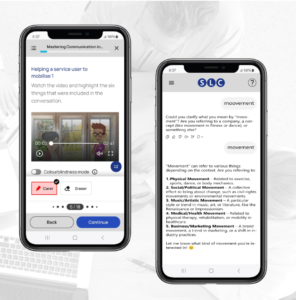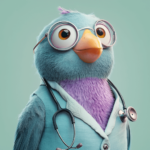
SLC win Ufi grant to develop AI language learning app for social carers
We’re delighted to have won a grant from Ufi VocTech Trust to develop an AI-driven technology solution that provides cheap phone-based language and communication skills

Medical English is a specialised branch of English tailored for healthcare professionals and students. It encompasses the language skills required to communicate effectively in medical settings, including patient interactions, clinical documentation, and professional discussions. Mastery of Medical English is crucial for ensuring clear and accurate communication, which is essential for patient safety and quality care.
Engaging in targeted learning activities can significantly enhance one’s proficiency in Medical English.
These activities often include role-playing patient interviews, practising medical case presentations, and participating in clinical simulations.
Interactive exercises such as medical terminology quizzes, reading and summarising medical research articles, and writing case notes are also highly beneficial.
These activities not only build vocabulary and improve fluency but also help in understanding the nuances of medical communication.
Effective communication is a cornerstone of medical practice.
Developing conversational skills in Medical English involves practising with scenarios that healthcare professionals commonly encounter. For instance, watching videos like these on Medical English conversations can provide valuable insights and examples.
These videos often demonstrate how to take patient histories, explain medical procedures, and discuss treatment options with patients and colleagues.
Practising these conversations in a supportive environment helps in building confidence and competence.
Now it’s your turn. Practice saying the following conversation between a doctor and a patient out loud:
Doctor: Good morning, Mr. Smith. How are you feeling today?
Patient: Good morning, Doctor. I’ve been feeling quite unwell lately.
Doctor: I’m sorry to hear that. Can you tell me more about your symptoms?
Patient: I’ve been experiencing severe headaches and dizziness for the past week.
Doctor: I see. Have you noticed any other symptoms, like nausea or vision problems?
Patient: Yes, I’ve also felt nauseous, and my vision gets blurry sometimes.
Doctor: Thank you for sharing that. I’ll need to run some tests to understand what’s going on. In the meantime, are you taking any medications?
Patient: Just my usual blood pressure medication.
Doctor: Alright. Let’s start with a physical examination and then proceed with some blood tests and imaging. We’ll find out the cause and decide on the best treatment plan for you.
Patient: Thank you, Doctor.
Doctor: You’re welcome, Mr. Smith. We’ll take good care of you.
A robust medical vocabulary is essential for precise communication in healthcare settings.
Key areas include anatomical terms, medical conditions, diagnostic procedures, and treatment protocols.
Regularly studying medical dictionaries, flashcards, and vocabulary lists can aid in retention. Additionally, incorporating these terms into daily practice through writing and speaking exercises reinforces learning.
Understanding prefixes, suffixes, and root words in medical terminology also helps in deciphering new terms.
By consistently expanding and practising these terms, you can enhance your communication skills and ensure better patient care.
Here’s a short list of essential Medical English vocabulary:
Specialist Language Courses (SLC) offers comprehensive Medical English courses designed to meet the needs of healthcare professionals at various stages of their careers.
These courses cover essential topics such as medical terminology, patient communication, and clinical documentation. SLC’s courses are tailored to different medical professions, including doctors, nurses, and allied health professionals, ensuring relevant and practical content.
By subscribing to SLC’s Medical English courses, you can enhance your language skills, improve patient care, and advance your career. Check them out:
Mastering Medical English is vital for healthcare professionals to ensure clear, effective, and compassionate communication in their practice.
Through dedicated activities, focused vocabulary building, and specialised courses, you can significantly improve your proficiency.
By investing in your Medical English skills, you are not only enhancing your professional capabilities but also contributing to better patient outcomes and a more collaborative healthcare environment.

We’re delighted to have won a grant from Ufi VocTech Trust to develop an AI-driven technology solution that provides cheap phone-based language and communication skills

We’re delighted to announce a partnership with leading Medical English app, Doxa.

Back to Menu ↩ What is the UK Foundation Programme? The UK Foundation Programme is a two-year, structured, work-based training programme which is designed to
Get updates and get the latest materials on Medical English, OET and IELTS
